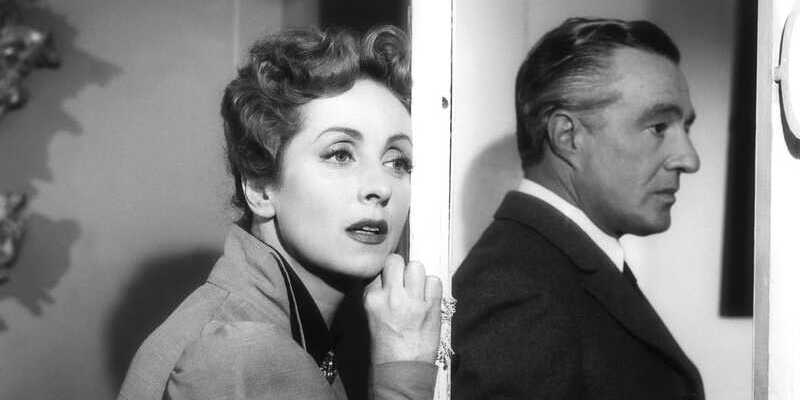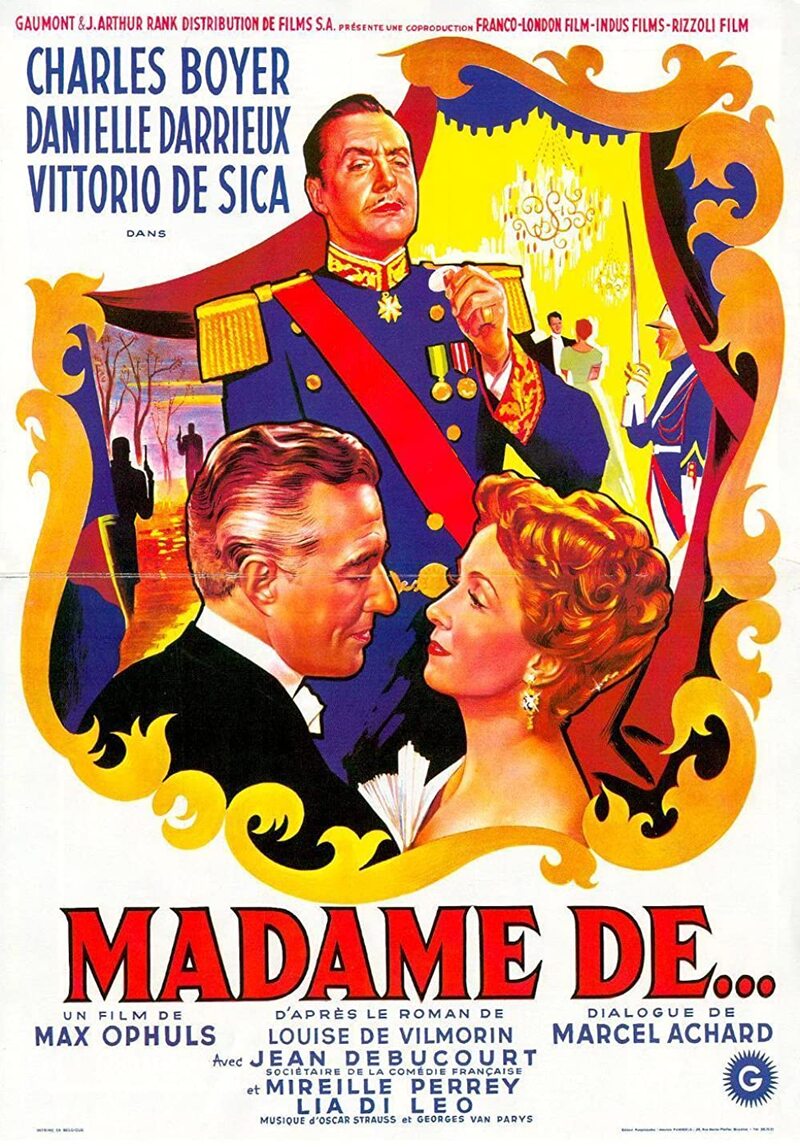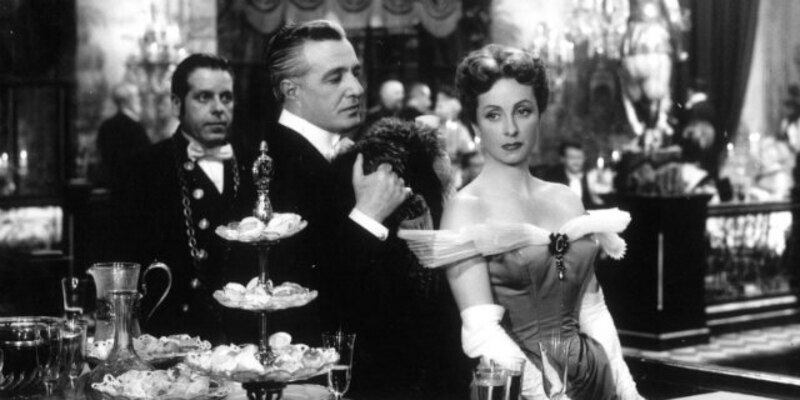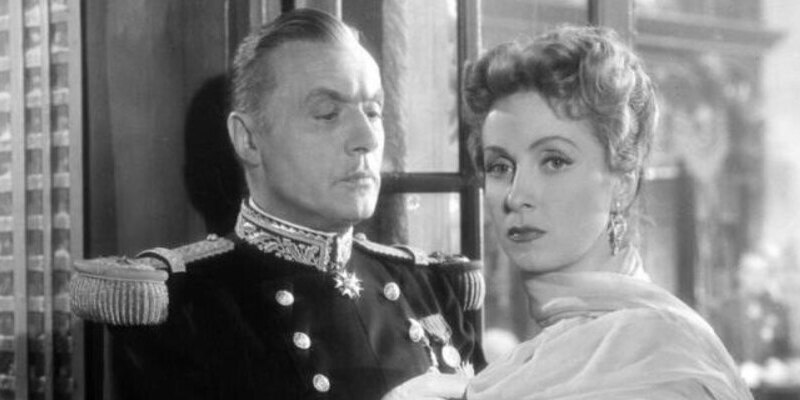
Review by
Jason Abbey
Directed by: Max Ophuls
Starring: Charles Boyer, Danielle Darrieux, Vittorio De
Sica, Jean Debucourt

Max Ophuls' sinuously elegant drama about errant earrings and
clandestine love sounds on paper like the worst kind of fluff. Add a milieu
of military aristocracy and urbane riches that would have Julian Fellowes
purring and you should have a film both tawdry and offensive.
The Earrings of Madame de… is a masterpiece.
A film of elaborate camera moves and beautifully contrived set pieces, it
is also a beautifully acted film, in particular Danielle Darrieux as
the titular Madame, a performance as elegant and complex as the director's
staging.

In Vienna, Louisa (Darrieux) is married to an older General (Charles Boyer), who despite being older and in a position of high authority, seems
remarkably unperturbed by her succession of suitors and wayward spending
habits. It would appear that rumpy pumpy outside of marriage is indulged as
long as the L word never rears its ugly head.
Ophuls follows Louisa in one long tracking shot as she empties her wardrobe
for furs and jewellery in order to pay off her debts. Choosing earrings (a
present she never liked from her husband), she plans to make a show of
losing them at the theatre before flogging them to Remy (Jean Debucourt), the jeweller who originally sold them to the General. Remy then tells
the General what has happened; he then buys them back and gives them to his
mistress, who loses them gambling (keep up), before finding their way into
the hands of the Baron Donati (Vittorio De Sica). That is when things
get complicated (although more from an emotional vantage point than through
any more plot contortions with those infernal earrings).
It is the emotional significance of the earrings - starting out as
meretricious baubles and slowly transforming into totems of such
significance that blood will eventually be spilled for them - rather than
the monetary value, that is the true story.

The Baron is immediately smitten with Louisa, and whether through
engineered happenstance or blind luck, literally bumps into her in his
carriage. Once the Baron is introduced into Viennese society it is
inevitable that their paths will intertwine, a courtship spurred on by the
absence of the General attending to military matters. Their courtship and
intensifying love for each other is wrought in one outstanding piece of
cinema in which months are condensed into one dance as the backdrop changes
and the dancefloor empties, save for the pair in question. The elegance of
the dance and the virtuoso excellence of the staging leaves us in no doubt
that they have both transgressed the sexual contract and fallen in love. To
seal that pact, he gives her the very earrings she thought sold in the
opening of the film.
Ophuls, as well as being firmly committed to the love affair, is also fully
aware of the absurdities of the situation, as the earrings go awry a further
two times, leading to the jewellery being castigated as he attempts to flog
the earrings to the General one time too many. For all the lushness and
elegance of the upper-class on which he focusses, Ophuls also has a keen eye
on the underclass, be it the string quartet uninterested in the affair in
front of them but just wanting to pack up and piss off, or the barracked
soldiers who have to deal with an irate cuckolded General.
Once the seriousness of the affair is revealed, Louisa is sent away,
leading to a beautiful montage of longing and sadness in various picturesque
locales that ends with a letter being torn to shreds and scattered in the
wind like snow before dissolving into an alpine vista; it's a transition
that is one of the most beautiful in classic cinema.

If it strays into melodrama in its final reel, it can be indulged. This is
one of those rare films in which all the component parts work together
beautifully, easily holding a candle to those other classics of the mould,
such as Casablanca and Mildred Pierce. It's a director at the very top of his game - one who died to soon. This
is the last of his classics and should be required viewing for anyone who
has the slightest love of what true cinema can do.

Madame de... is on MUBI UK now.
